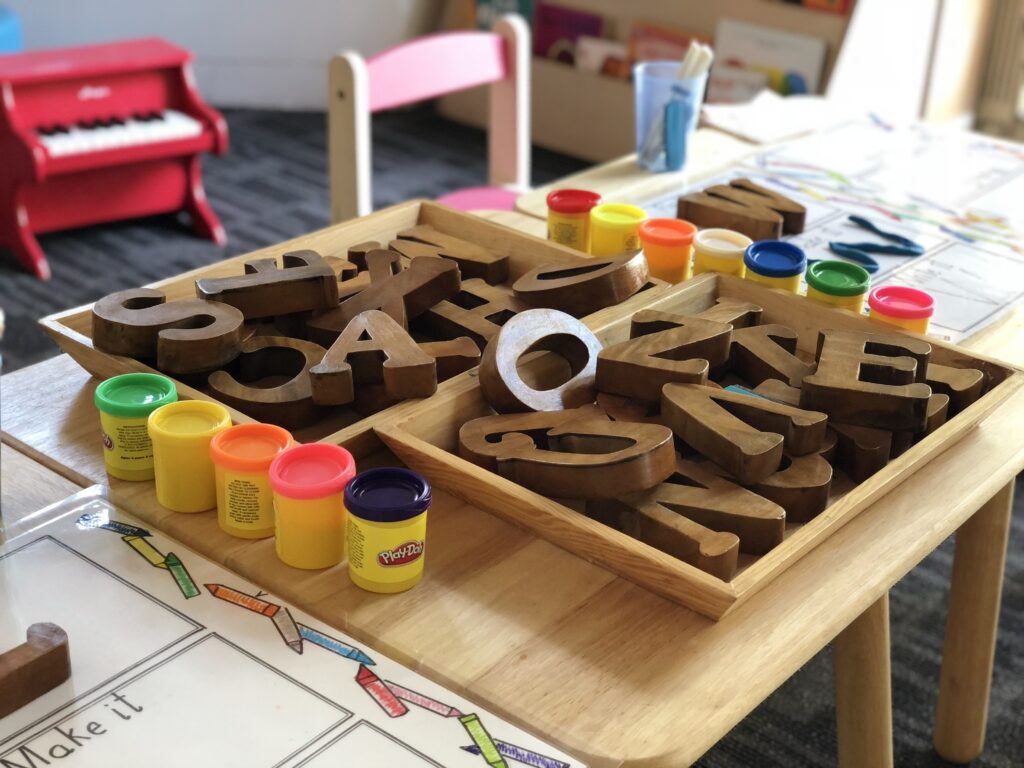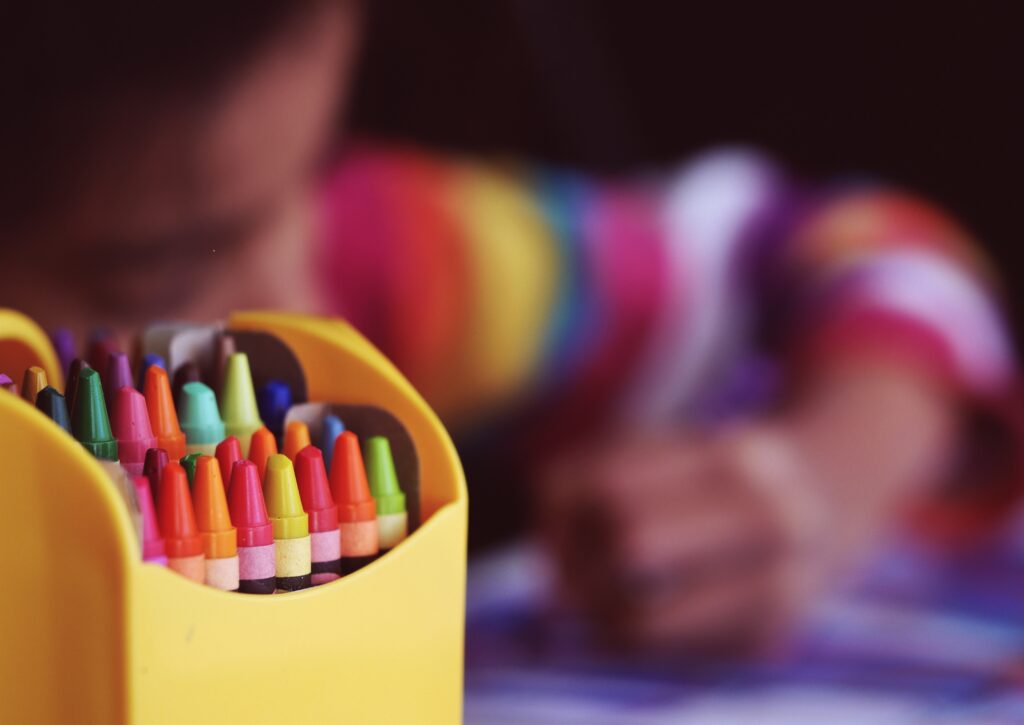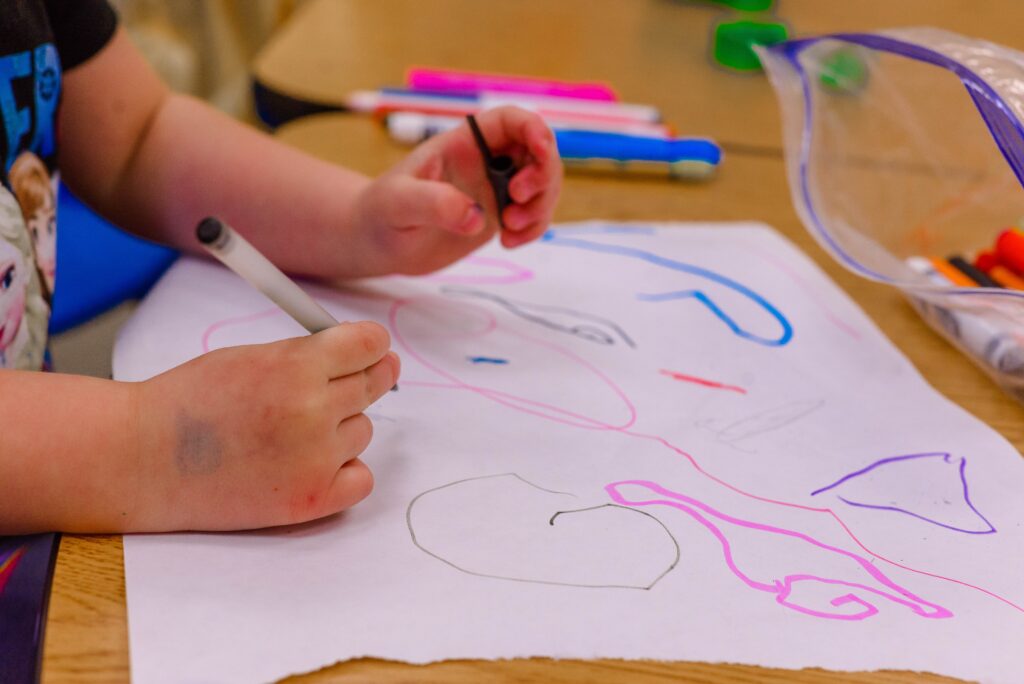Navigating Preschool Transitions: Tips For A Smooth Start In A New Environment
You are about to embark on an exciting new journey as your child starts preschool. This article provides valuable tips and advice on how to navigate the transition and ensure a smooth start in this new environment. From establishing routines and creating a comforting space to fostering open communication with teachers, these insights will help ease any anxieties and set the stage for a positive preschool experience for both you and your child.

Preparing Your Child for the Transition
Establishing a Routine
Establishing a routine is crucial in preparing your child for the transition to preschool. Children thrive on consistency and having a predictable schedule can help them feel more secure and prepared for what’s to come. Start by implementing a daily routine at home that mimics the schedule they will follow at preschool. This includes waking up, eating, and resting times. By familiarizing them with a structured routine, you can help ease their anxiety and make the transition smoother.
Talking About the Transition
Communication is key when it comes to preparing your child for preschool. They might have several questions and concerns about this new experience, so take the time to have open and honest conversations with them. Speak to your child about preschool in a positive and exciting manner, highlighting all the new friends they will make and the fun activities they will be able to participate in. Addressing any worries or fears they may have will make them feel supported and more at ease.
Visiting the New Preschool
Taking your child to visit the new preschool before their first day can greatly reduce their anxiety. Arrange a visit where they can see the classrooms, play areas, and meet some of the teachers and staff. This familiarization process will help them feel more comfortable in the new environment and alleviate any nerves they may have. Encourage them to ask questions and explore the space freely to build a sense of familiarity and ownership.
Meeting the Teachers and Staff
Meeting the teachers and staff is an essential step in preparing your child for preschool. These individuals will be their caregivers and mentors while they are away from home. By introducing your child to the teachers and staff before the first day, they can begin to develop a bond and sense of trust. Take the time to have conversations with the teachers, sharing important information about your child’s likes, dislikes, and any specific needs they may have. This open line of communication will contribute to a positive and supportive preschool experience.
Managing Your Own Emotions
Recognizing Your Own Anxiety
While it is natural to feel anxious about your child starting preschool, it is important to recognize and manage your own emotions. Children can pick up on their parent’s anxiety, which may influence their own feelings about preschool. Take a moment to reflect on your emotions and identify any concerns you may have. Acknowledge that it is normal to feel a range of emotions, but emphasize the positive aspects of preschool to help alleviate any fears you may have.
Seeking Support from Other Parents
Connecting with other parents who are going through or have been through the preschool transition can be a valuable source of support. Reach out to friends, join online parenting groups, or attend local events where you can meet other parents in similar situations. Sharing experiences, advice, and fears can provide reassurance and help you feel more prepared and supported during this transition period.
Communicating with the Preschool Staff
Maintaining open lines of communication with the preschool staff is crucial in managing your own emotions. If you have any concerns or questions, don’t hesitate to reach out to the teachers or administrators. They are experienced in helping children and families navigate this transition and can provide guidance and reassurance. Building a positive relationship with the preschool staff will not only benefit your child but also help alleviate any anxieties you have as a parent.
Handling Separation Anxiety
Gradual Separation
For children experiencing separation anxiety, a gradual separation approach can be highly effective. Start by spending short periods of time away from your child, gradually increasing the duration as they become more comfortable. This can involve leaving them with a trusted caregiver or family member while you run errands or engage in self-care activities. The gradual separation process helps build trust and confidence in your child, making the eventual transition to preschool less overwhelming.
Creating a Goodbye Ritual
Establishing a goodbye ritual can provide a sense of comfort and routine for your child during drop-offs. This could involve a special handshake, a hug, or a specific phrase that you say before leaving. By creating a consistent and meaningful ritual, you can help alleviate separation anxiety and assure your child that you will return to pick them up at the end of the day.
Offering Comfort and Reassurance
When your child experiences separation anxiety, it is important to offer them comfort and reassurance. Let them know that it is normal to feel sad or anxious when saying goodbye, but also emphasize the fun activities and new friends they will have at preschool. Encourage them to share their feelings and allow them to bring a comfort item from home, such as a favorite toy or a family photo. Remind them that you will always be there to support and love them, even when you are not physically present.
Building Connections with Other Parents and Children
Attending Preschool Events and Activities
Attending preschool events and activities is an excellent way to build connections with other parents and children. Participate in orientations, back-to-school nights, and social gatherings organized by the preschool. These events allow you to meet other families who are going through the same experience and create opportunities for your child to make new friends. By actively engaging in these events, you can establish a sense of community and support that extends beyond the classroom.
Organizing Playdates
Organizing playdates with other children from the preschool can help your child build relationships and familiarize themselves with their peers. Connect with other parents and arrange playdates where the children can interact and engage in fun activities together. This not only promotes socialization but also helps your child develop crucial social skills that will benefit them throughout their preschool years and beyond.
Joining Parent Support Groups
Parent support groups provide a valuable space for sharing experiences and seeking guidance. Look for local parent support groups specifically for parents of preschoolers or join online communities dedicated to this stage of parenting. These groups can provide a sounding board for any concerns or challenges you may encounter during the preschool transition. By connecting with other parents who are facing similar experiences, you can gain valuable insights and support.

Establishing Open Communication with the Preschool Staff
Introducing Yourself and Sharing Information
When your child starts preschool, it is important to establish open lines of communication with the preschool staff. Introduce yourself to the teachers and administrators, and provide relevant information about your child, such as allergies or specific needs. This information helps the staff create a safe and inclusive environment for your child and ensures they are well-cared for during their time at preschool.
Asking Questions and Expressing Concerns
Throughout your child’s preschool journey, don’t hesitate to ask questions and express any concerns you may have. Whether it’s about your child’s development, activities, or policies, the preschool staff is there to provide guidance and support. Clear communication between you and the preschool staff will foster a positive and collaborative relationship, ensuring that your child’s needs are met effectively.
Attending Parent-Teacher Conferences
Parent-teacher conferences offer an opportunity to discuss your child’s progress and development with their teachers. Make a point to attend these conferences to gain insight into your child’s experiences, strengths, and areas for improvement. Be proactive in seeking feedback and working together with the teachers to support your child’s growth. These conferences also provide a platform to discuss any concerns or address any challenges that may arise during the transition process.
Supporting a Smooth Transition at Home
Encouraging Independent Skills
Supporting your child’s independence at home can greatly contribute to a smooth transition to preschool. Encourage them to practice basic self-help skills, such as dressing themselves, using the toilet independently, and cleaning up after playtime. By fostering these skills, your child will feel more confident and capable in navigating the preschool environment.
Maintaining Consistency with Routines
Consistency is key in supporting a smooth transition to preschool. Ensure that your child’s routines at home align with the preschool schedule as much as possible. This includes consistent bedtimes, mealtimes, and nap times. By maintaining familiar routines, you provide a sense of stability and predictability for your child, making the transition to preschool less overwhelming.
Listening and Addressing Concerns
Throughout the transition process, it is essential to actively listen to your child’s concerns and address them empathetically. Encourage open conversations and allow your child to express any worries or fears they may have. By providing a safe space for them to share their feelings, you can offer reassurance and support. Address any concerns directly and involve both your child and the preschool staff in finding solutions.

Preparing for the First Day
Packing Essentials for the Preschool
On the first day of preschool, it is important to pack essentials that will help your child feel comfortable and prepared. Pack a change of clothes, a water bottle, snacks, and any comfort items they may need throughout the day. Label all their belongings with their name to prevent any mix-ups. By ensuring that your child has their basic necessities, you can help them feel secure and ready for the day ahead.
Discussing What to Expect on the First Day
Take the time to discuss what your child can expect on their first day of preschool. Explain the daily routine, the activities they will engage in, and the process of saying goodbye. Answer any questions they may have and emphasize the positive aspects of their first day, such as making new friends and participating in fun activities. This conversation will help alleviate anxiety and build excitement for the upcoming experience.
Creating a Positive Send-Off
Creating a positive send-off on the first day of preschool is crucial in setting the tone for a smooth transition. Arrive at the preschool with ample time to settle your child into their classroom. Offer hugs, reassurance, and reminders about the fun experiences they will have during the day. Remain calm and confident, even if your child expresses separation anxiety. Trust in the teachers and staff to provide a loving and supportive environment for your child’s growth.
Dealing with Challenges and Setbacks
Understanding that Setbacks are Normal
Challenges and setbacks are a normal part of any transition, including the transition to preschool. It is important to understand that not every day will be perfect, and your child may encounter difficulties along the way. Recognize that setbacks are opportunities for growth and learning, both for your child and yourself as a parent. Approach these challenges with patience, flexibility, and a willingness to adapt.
Working with the Preschool to Address Challenges
When challenges arise, collaborate with the preschool staff to address them effectively. Reach out to the teachers or administrators to discuss any concerns you have or seek advice on how to navigate specific situations. By working together, you can create strategies and solutions that support your child’s individual needs and promote their overall development.
Seeking Outside Help if Needed
If you find that your child is experiencing significant difficulties or if concerns persist over a prolonged period, it may be beneficial to seek outside help. Consult with your child’s pediatrician or a child psychologist who specializes in early childhood development. These professionals can offer guidance, assessments, and interventions to support your child’s well-being and ensure a successful transition to preschool.
Transitioning from Preschool to Kindergarten
Starting the Transition Early
Transitioning from preschool to kindergarten is another significant change for your child. To ensure a smooth transition, it is important to start the process early. Communicate with the preschool staff to gather insights on how you can prepare your child for the next step. Focus on developing skills that will be essential in kindergarten, such as letter recognition, counting, and social interaction. By starting the transition process early, you set your child up for success in their academic journey.
Preparing for a New Environment
Kindergarten often involves a different environment and increased academic expectations. Help your child prepare for this transition by discussing what to expect in kindergarten. Talk about the daily routine, the classroom setup, and the new classmates they will meet. Visit the new school, if possible, to allow your child to become familiar with the building and explore the surroundings. By providing a sense of familiarity and knowledge, you can ease any anxieties your child may have about starting kindergarten.
Building Independence and Confidence
Kindergarten places greater emphasis on independence and self-reliance. Encourage your child to practice tasks such as dressing themselves, tying their shoes, and organizing their backpack. Foster their problem-solving skills and decision-making abilities by allowing them to make choices in their daily routines. By building their independence and confidence, you empower your child to navigate the new challenges they will encounter in kindergarten.
Celebrating Milestones and Achievements
Marking Important Milestones
Throughout your child’s preschool years, it is important to mark important milestones and celebrate their achievements. Whether it is their first day of preschool, a successful transition, or completing a significant project, take the time to acknowledge and celebrate these milestones. This recognition reinforces your child’s sense of accomplishment and boosts their self-esteem, fostering a positive attitude towards learning and growth.
Recognizing Achievements and Progress
As your child progresses through preschool, make a conscious effort to recognize their achievements and progress. Celebrate their personal milestones, such as learning to write their name or mastering a new skill. Offer praise and encouragement for their efforts and accomplishments. This positive reinforcement motivates your child to continue their learning journey with enthusiasm and resilience.
Rewarding Effort and Resilience
Preschool is a time of exploration and growth, and it is important to reward your child’s effort and resilience. Acknowledge their hard work, determination, and ability to overcome challenges. This can be done through verbal praise, small rewards, or special treats. By emphasizing the value of effort and resilience, you instill in your child a growth mindset and a lifelong love for learning.
In conclusion, navigating the preschool transition can be a transformative and exciting experience for both you and your child. By establishing routines, communicating openly, and building connections with other parents and children, you can support your child’s smooth transition into preschool. Managing your own emotions, handling separation anxiety, and establishing open communication with the preschool staff are crucial steps in ensuring a positive preschool experience. Supporting a smooth transition at home, preparing for the first day, and addressing challenges and setbacks with resilience are key factors in your child’s successful preschool journey. Finally, transitioning from preschool to kindergarten and celebrating milestones and achievements along the way will set the stage for a lifetime of learning and growth. Embrace this new chapter with enthusiasm, knowing that you have laid a strong foundation for your child’s educational journey.




